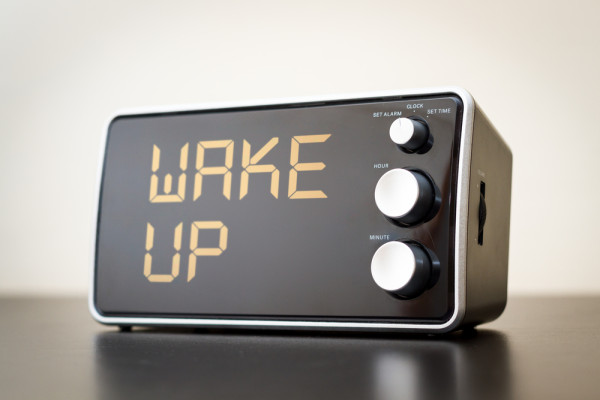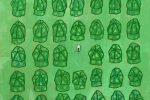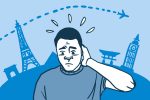This is how your day begins. You wake up and your first class starts at 9 a.m. You long to sleep in because you stayed up until 1 a.m. doing “homework” (a.k.a listening to the newest Spotify playlist you spent a couple hours putting together). Throughout the day, you tell yourself you’ll workout right after your last class, finish your homework, then make you and your roommate dinner.
But of course, plans always hit the fan when you develop an unnecessary habit: once you get home, you tell yourself you deserve a needed nap, much like you do most school days. After all, you were up until the middle of the night doing homework, correct? Ah, so you take time to cozy up and take a quick, thirty-minute, “power nap.” By the time you wake up, it’s actually an hour or two later as you completely ignored your thirty-minute alarm. You tell yourself you’ll finish your homework later tonight, you skip the workout, and you take some time to get dinner with your roommate. The rest of the story is pretty self-explanatory. Your “quick” nap halted the rest of your day from being productive.
If you grew up experiencing American culture, you understand the fast-paced lifestyle we Americans live through day-by-day. Our country’s lack of siestas are putting us ahead of the game. When you take advantage of your time and live in a quickly progressing world, it is important to keep up. When you fall into this cycle of sleeping accidentally or getting a snooze in because you couldn’t last night, all your progress and plans are put on a shelf. Wouldn’t it be much easier if we could do what’s recommended by our doctors? Sleep seven to eight hours every night, chug down a coffee every morning, and eat healthy, energizing food so that we don’t feel sluggish in the middle of the day.
When you develop a habit like napping, these tactics that can benefit students, or just people in general, are usually inconsistent. Laziness and mid-day slumbers are a perfect pair. To be lazy and fail to manage your time means you aren’t prioritizing yourself, which is an imperative step to staying on top of your work. When you put yourself and your nap schedule before your other priorities, it shows a lack of ambition and motivation toward your goals. Now, this is why successful people are ahead of others. They understand the importance of not wasting time and are able to identify what habits will benefit them the most in order to be successful, day-in-and-day-out.

Snoozing for thirty minutes to an hour or even more can seem minuscule in the perspective of how much time we have in a day. However, even the slightest actions can be detrimental to your plans, and in some cases, your health. Depending on how packed your schedule is, the flip side of a day without napping gives you more leeway to perfect the more important tasks at hand. This could be completing your school work, getting on time to your job, making time for a workout or even having time to shop for groceries before the store closes. Taking fewer naps (or none at all) can make you more productive and successful while allowing you to form all-around healthier lifestyle habits.
Jeremy Candales, senior at Cornell University and President of Slope Media Group, says, “Naps are really only useful if you’re not getting enough sleep, which is generally a sign of poor time management, which leads to working late or even pulling an all-nighter.” Realistically, at one point or another you might need to nap, but consistency and productivity go hand-in-hand. Good behaviors take time to adjust and become habitual.
As the President of Slope Media Group, Candales has to stay alert all day for club meetings, classes, and many other commitments. He explained that he preferred “to keep a well-planned, organized schedule that details what I need to be doing… Doing that lets me stay on top of everything easily so that I’m not caught off guard by anything, and can make sure everything gets done on time.” Staying organized, knowing what you need to accomplish throughout the day, and prioritizing the tasks at hand can encourage you to stay motivated and awake. This will help you keep up healthy sleeping habits!
Now, let’s say you wake up for your 9 a.m. class after a good eight-to-ten-hour night’s sleep (you were able to sleep that long because you didn’t take a mid-day nap the day before). You don’t feel groggy or inclined to take a long pause in between your daily activities. When you get home, you’re able to finish your homework, down a coffee, get that workout in, and spend time with your roommate. Days don’t seem as short. You aren’t scrambling to finish that paper due at 12 a.m.
People will look at you as if you are crazy when you tell them you don’t take naps (well, not anymore at least). If they question it, hand them your new and improved resume. In that same time that you could be taking a nap, you instead were able to finish three chapters of that government textbook. Maybe you found the time to cash in that direct deposit, or better yet, you called to check up on grandma while you made lunch. Learning that time isn’t to be wasted is a necessity in life. To keep things surface level, naps waste your precious time. You have the potential to accomplish so much if you make efforts to keep healthy habits. Strive for what will benefit you to the utmost ability. In a dog-eat-dog world, managing your sleep schedule and being organized will put you at the top of the pyramid.

















